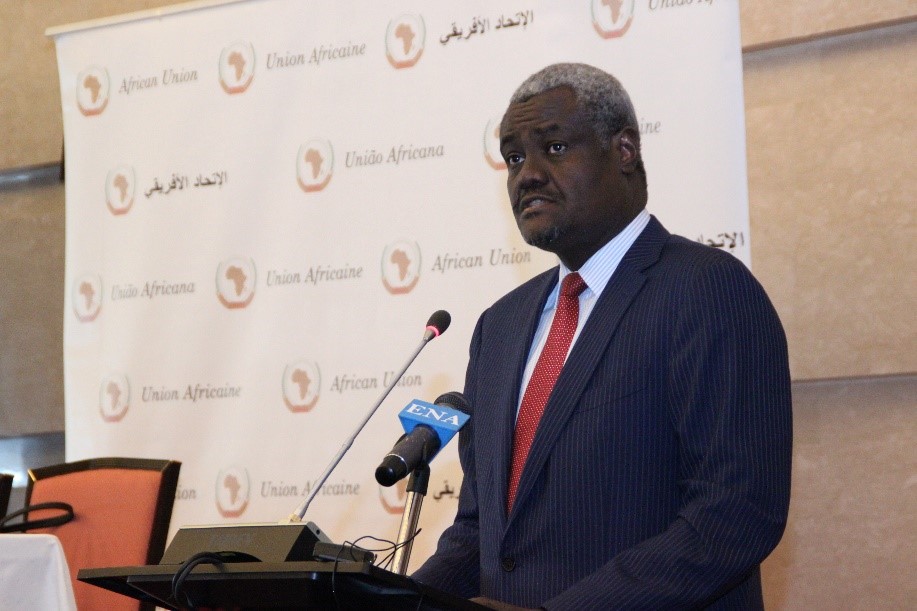
The AU, EU and the UN must work together to find an immediate solution to the migration crisis and the situation in Libya, Chairperson of the African Union Commission Moussa Mahamat said Wednesday.
Speaking at a press conference with EU external policy chief Federica Mogherini, Mahamat drew a connection between the situation in Libya and the migration crisis, stating that because of the lack of governance in the North African country, criminal groups are thriving in Libya, including human traffickers.
“I think it’s important for urgent measures to be taken jointly with the Libyan authorities, the AU, the EU, the UN, so as to find an immediate solution, because people are under threat, people’s lives are under threat,” Mahamat.
He stressed that smuggling was “the most shocking aspect” of migration, noting that the AU, the EU and the UN agree on the “need to be merciless in our fight against people smugglers and slave traders of modern times.”
Earlier in November, the CNN published a report showing people that were being sold as slaves in Libya.
Libyan authorities have reportedly launched a probe into the case.
Libya has been suffering from turmoil resulting in the humanitarian and refugee crisis since 2011, when a civil war broke out in the country and long-standing leader Muammar Gaddafi was overthrown.
Since then, the country has been controlled by various authorities, with the UN-backed Government of National Accord operating in the country’s west with headquarters in Tripoli, and the parliament backed by the Libyan National Army and based in the city of Tobruk governing the eastern part of the country.
According to the latest data of the International Organisation for Migration, over 19,000 migrants have been rescued or intercepted in Libyan waters on their way to Europe this year.
In the first 10 months of 2017, over 111,000 migrants have arrived in Italy by sea, with the majority of them coming from Libya.










